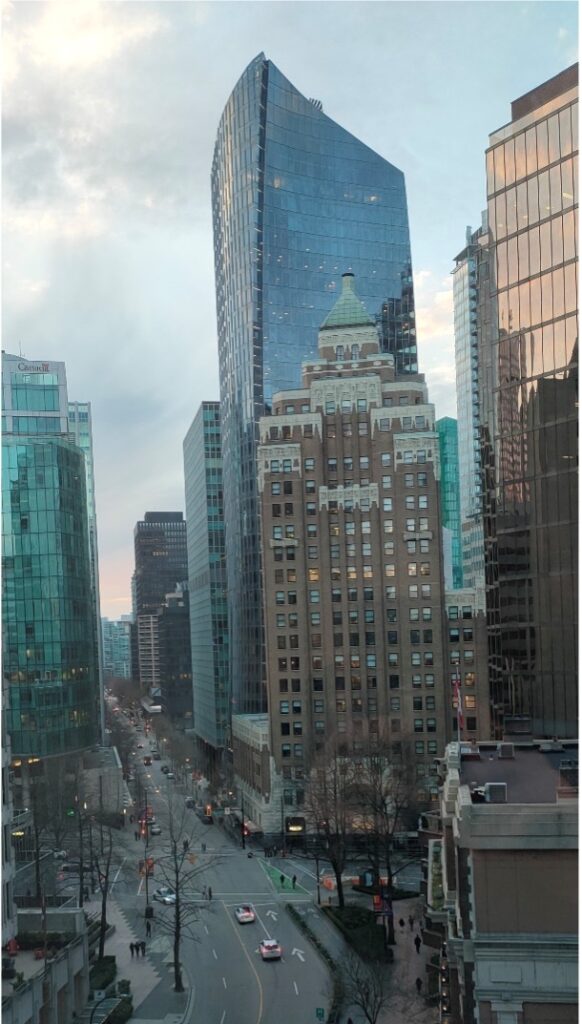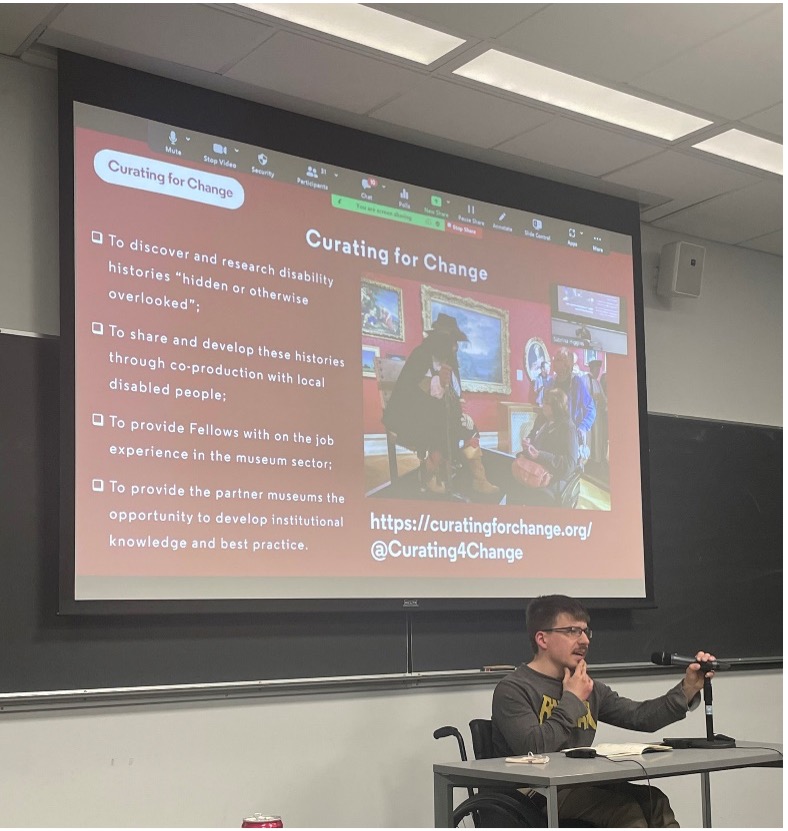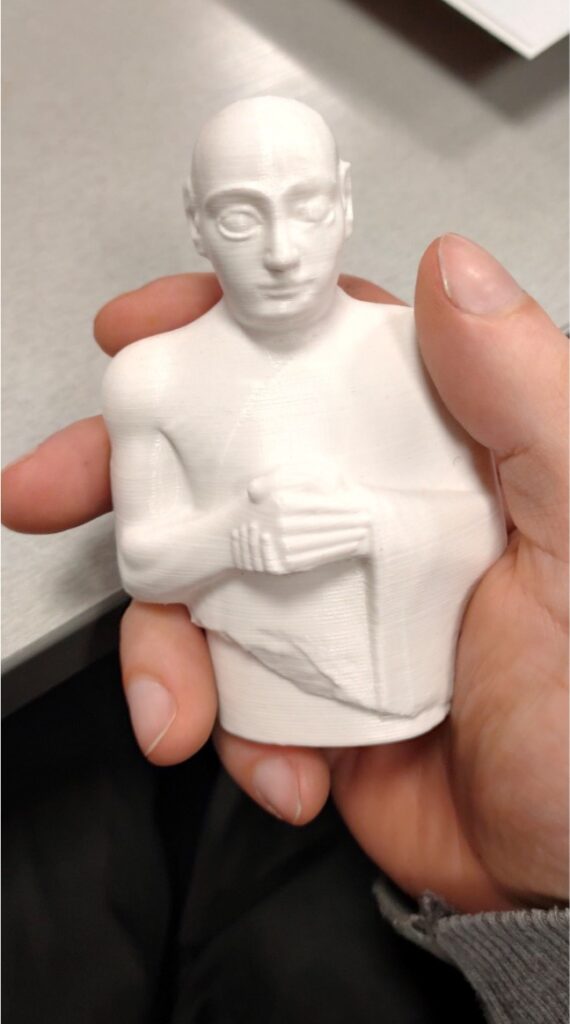Kyle Lewis Jordan, our Fellow based at the Ashmolean and Pitt Rivers Museums in Oxford, went to Vancouver, Canada in March and represented Curating for Change at a colloquium where he discussed approaches to the body and disability within museums. In this blog post, Kyle discusses the trip and reflects on the key takeaways from the experience.

The trip to Vancouver
On March 23 – 25 2023, I had the great privilege of being invited all the way to Vancouver, Canada to take part in a colloquium titled Presenting the Past: Responsible Engagement & Ancient Mediterranean History organised by Peopling the Past, a Digital Humanities collective that works to promote free, open-access resources for teaching and learning about people in the ancient world. Those gathered for the colloquium included museum professionals, artists, podcasters and educators from various different sectors, all invested in exploring our collective efforts and responsibilities towards educating the public about ancient peoples and their pasts.
I had never been to Canada before, so I eagerly seized the opportunity to go. Despite my nerves about flying as a wheelchair user prior to the day itself – being separated from my chair for any extended amount of time is always a calculated risk – the journey was peaceful and the organizers went to great lengths to support me upon arriving the day before the colloquium. Attendees were treated to staying in a rather luxurious hotel in downtown Vancouver, where I practically had a whole suite to myself; much needed after ten hours of travel and an eight-hour time difference! What made it even better was an open-all-hours bakery that was right across the street, which helped satisfy my late-night cravings before going to sleep.
Presenting at the colloquium

While invited before I began my fellowship at the Ashmolean and Pitt Rivers Museum, I was very eager to include a discussion of my ongoing work for the Curating for Change project. My presentation was titled “Eyes of the Beholders: Approaches to the Body and Disability in Museums”, which I delivered as part of the first panel of the colloquium focusing on museums and cultural heritage. I started by defining disability and its various models, as well as defining what we might popularly imagine a museum to be, inviting the other contributors and audience both in-person and online to ask a very integral question: With what voice(s) does the museum speak? Whose authority does the museum uphold and represent?
These critical reflections around agency and authority – questions central to the work of social justice, not least disability justice – would serve as a strong thread that helped bind together all of the topics discussed. In my presentation I explored various misconceptions and misappropriations of human remains and the human form in art in museums today, and how projects like Curating for Change are an attempt to address these imbalances. I discussed how projects like this give more agency and authority to disabled curators in order to change these narratives, and where that might lead. There were also talks addressing decolonising perspectives within museum collections and narratives, creating more diverse pedagogies, and efforts to digitise and further expand the methods and means of teaching ancient Mediterranean history. All of these talks were recorded, and will be released by Peopling the Past in the near future.
The joy of connecting with fellow scholars

Throughout the entire weekend, both during the sessions and over the course of several delicious lunches and dinners which showcased Vancouver’s rich culinary scene, discussions about our shared challenges but also the promise of greater futures abounded. I deeply valued being able to learn from so many wise and caring thinkers and creators, and being able to contribute my own perspectives as a disabled scholar and curator. One of the things I appreciated most about the colloquium is how joyous it was. It served as a poignant reminder that working in museums need not solely be about extracting past and contemporary thoughts and feelings so as to lay them bare for all the world to see, but that we can also give strength and joy to each other by coming together to celebrate different ways of knowing and doing, of being and becoming.
I want to express my heartfelt thanks to all my fellow contributors who it was a joy to meet in person, as well as the whole Peopling the Past Team (Carolyn M. Laferrière, Chelsea A. M. Gardener, Christine L. Johnson, Megan Daniels, Melissa Funke, Sabrina C. Higgins and Victoria Austen) for both giving me the opportunity to take part and going above and beyond to accommodate me during my stay. Special thanks as well to the University of British Columbia, Simon Fraser University, Acadia University, the University of Winnipeg and the Vancouver Chapter of the American Research Centre in Egypt for their support of the colloquium.






